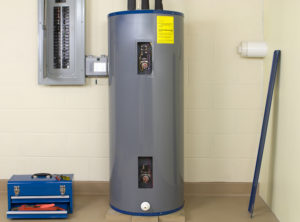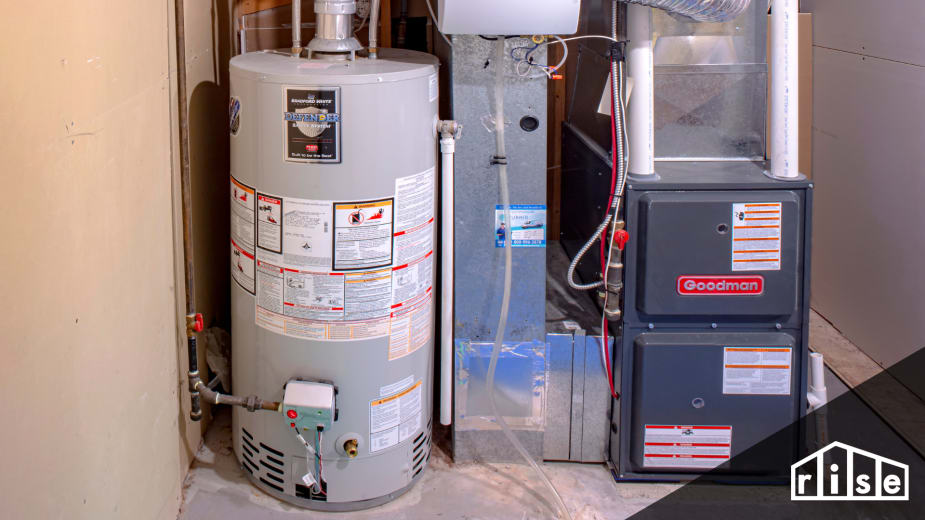Crucial Advice for House Owners Managing Faulty Water Heaters
Crucial Advice for House Owners Managing Faulty Water Heaters
Blog Article
What're your ideas regarding Water Heater Repair?

Whether it is located in the basement or a separate space, damaged water heating units can trigger anxiety. Having no warm water supply is likewise bothersome.
Call the Plumber
After doing the initial two security actions, you have to call your plumber to come right away to fix a burst water heating unit. There are typically indications that your aging water heating unit has sediment buildup in the interior.
Don't wait on significant flooding to call the plumber. Already, you will need to invest even more to restore your home. Rather, as quickly as you find these indications, have actually a professional involved check your water heater storage tank. Generally, hot water heater have a lifespan of concerning 8 to 12 years. With routine assessment and maintenance, you can prolong its life.
Cut Off the Cold Water Supply
Cut off the storage tanks faucet water supply from the resource. This goes from your major water line right into the tank. When your tank remains in good condition, the cold water quits filling out when the storage tank is full. Because it is leaking, the water will certainly continue to stream. Shut the valve found at the top of the heater. Turn this clockwise to close it off. You need to transform off that primary water supply line outside your home if you can not find it or reach it.
Shut Down Source Of Power
Before calling the plumber, shut down a gas hot water heater by turning the temperature level dial. This is typically found at the top of the thermostat. If you have a model that works on electrical power, turn off the breaker. This will protect against electrocution, specifically if there is a leak as water is a conductor. Typically, the burner shuts down when the water strikes a specific temperature. With a busted container, it may malfunction. Cutting it off ensures you stay risk-free.
Clean Up Building
After calling the plumber, file damages by remembering and photos so you can claim your home owner's insurance coverage. From there, start the instant cleaning. Get any kind of essential personal belongings to stop additional saturating. After that, get rid of any standing water to avoid mold and mildew growth. Make use of that to drain the water if you have a completely submersible water pump. Otherwise, the standard bucket technique will certainly additionally work. Try to mop out everything, consisting of walls and also baseboards. Keep them running to maintain air flowing if you have an electric follower as well as dehumidifier. This will certainly assist prevent mold and mildew growth.
Bear in mind, if you see any type of issues with your water heater, call the pros right away. You can not take this trouble gently because a defective thermostat can elevate water temp to a precariously high level, leading to unintentional burns.
After doing the initial 2 safety steps, you have to call your plumber to come right away to take care of a burst water heater. Instead, as soon as you identify these indications, have actually a specialist come to examine your water heating unit storage tank. Before calling the plumber, shut off a gas water heating system by turning the temperature level dial. If you have a completely submersible water pump, use that to drain the water. Bear in mind, if you discover any type of issues with your water heating unit, call the pros right away.
Is My Water Heater Broken?
The Water Heater is Old
No appliance will last forever. This includes a home’s water heater. During its lifespan, residents are going to face a situation where a new water heater installation will be necessary. The biggest problem with this is that most people are not sure when their water heater expires. Not knowing this can lead to serious risks if the unit begins to act up due to old age.
Most makes and models of water heaters will last between eight and 10 years. While 10 years is the age when water heater replacement is highly recommended, the need to replace the unit may occur before this time or after. If the unit doesn’t show any symptoms of a problem, it is a good idea to replace it at the 10-year mark (from the manufacture date).
Some of the symptoms that indicate a new unit is needed include rusting, leaks, noises, and a failure to heat up the water. Also, note that not all units have a 10-year life expectancy. The main exception to this rule is that a gas unit will last for six to eight years.
Rusty Heater Inlet Valve or Water
While steel is the strongest material on earth, it does have a weakness – rust. If corrosion occurs on a steel surface, it will begin to spread and eat through the steel in certain areas. On water tanks and pipes that are made of steel, rust is a warning sign of an impending leak.
The issue for many is trying to figure out if the rust is coming from the water heater or the pipes that lead to the faucet. If rust is seen, it is a clear indication that water heater service from the professionals is needed.
If rusty water appears out of the faucets in the bathtub or sink, it likely means a rusty water heater. If there is rust near the water inlet or the pressure relief valve, rust has likely developed inside the tank. If tap water appears rusty, it may be an issue with the pipes.
Strange Sounds from the Water Heater
Are there strange sounds coming from the tank? As a water heater gets older, rumbling noises may develop and get louder and louder as the water in the tank heats up. In homes where large amounts of hot water are used, the issue is likely going to be even more obvious when more serious issues arise. If there is a strange or loud noise coming from the unit, it is probably because of sediment buildup. A good way to remedy this problem is by flushing the heater. If this does not work, then a new unit may need to be installed.
Leaks
As a water heater gets closer to the end of its useful life, there is a higher chance there will be water around the tank. If there is water, this usually means leaks are occurring. Based on where the unit is located in the home, a leak may result in serious property damage.
Leaks are usually caused by expansions in the metal tank. The expansions occur as time passes and as the inside body of the tank is exposed to multiple heating cycles per day. When a fracture forms, the gap will be slight enough to hold the water in; however, in more serious situations, this will not be the case. If the tank is idle, the water will not leak but when the metal expands during each heating system, small amounts of water will get through the gap.

Hopefully you liked our article about Maintaining & Draining a Water Heater. Thanks so much for finding the time to read through our blog. Are you aware of somebody else who is inquisitive about What Do You Do When Your Water Heater Bursts?? Why not promote it. We love reading our article about What Do You Do When Your Water Heater Bursts?.
Click For More Information Report this page